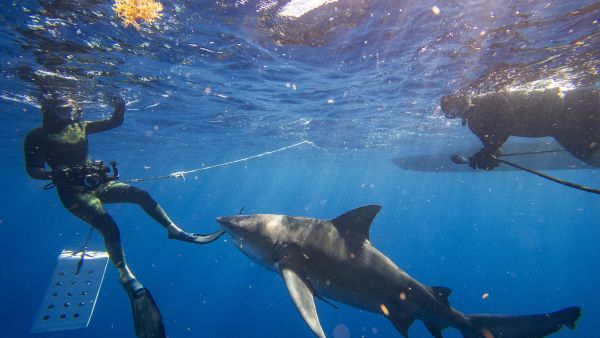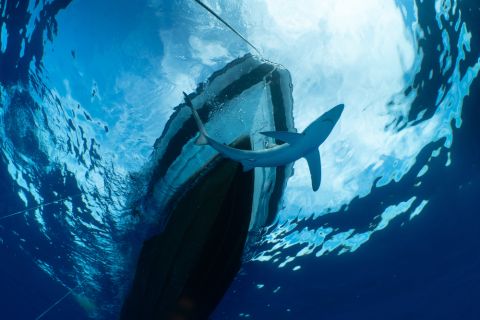ALBAWABA Shark attacks on humans have increased, and some scientists attribute this to sharks consuming drugs and hallucinogenic pills that smugglers throw into the water.
The channel "Discovery" is airing a documentary titled "Cocaine Sharks" that investigates whether predatory oceanic fish are feeding on the drugs and floating pills discarded by smugglers.
Countless tons of cocaine have been abandoned in the waters surrounding Florida, brought from South and Central America by smugglers with the intention of either having their associates collect it or evading arrest. Subsequently, these drugs are frequently carried ashore by ocean currents.
Tom 'The Blowfish' Hird, a marine biologist, and Tracy Fanara, an environmental scientist from the University of Florida, conducted a study on sharks near the Florida Keys to investigate the potential impact of drugs on their behavior.
While observing shark behavior during a dive, the team encountered a great hammerhead, a species that typically avoids humans, but this particular individual approached the team directly and seemed to be swimming irregularly.
Additionally, the researchers observed a sandbar shark displaying peculiar behavior. It appeared fixated on something and was swimming in tight circles, despite there being nothing visible in its vicinity.
The biologist acknowledged that various factors could be responsible for the peculiar behavior observed in sharks, and the results of the study do not conclusively prove that sharks in Florida are consuming cocaine.
Mr. Hird stated, "We have no idea what [cocaine] could do to the shark."
The scientists created packages that resembled cocaine bales and dropped them into the water to see how the sharks would respond. The sharks swam straight to the bales and took bites out of them, the outlet reported.
They also filled balls of bait with highly concentrated fish powder to simulate cocaine and see how the animals would react.








